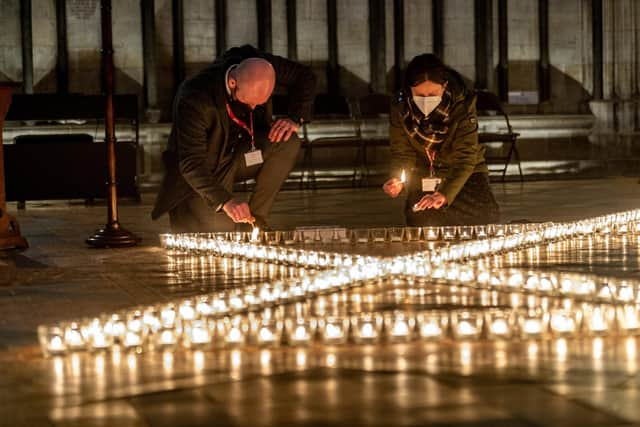Holocaust Memorial Day: How Yorkshire will remember the horrors of Holocaust
The theme for this year’s reflection, as set by the Holocaust Memorial Day Trust, is ordinary people – “the ordinary people who let genocide happen, the ordinary people who actively perpetrated genocide, and the ordinary people who were persecuted”.
Advertisement
Hide AdAdvertisement
Hide AdBoth featured in the new photography exhibition, Generations: Portraits of Holocaust Survivors, opening at the Imperial War Museum North in Manchester on Friday.


Mr Lachs was born in Cologne, Germany, in 1926 and lived a normal life until November 9, 1938, Kristallnacht or the Night of Broken Glass, a Nazi pogrom, killing Jews and destroying Jewish property.
His father lost his job and the family home as Adolph Hitler’s persecution of Jews gathered pace, but it took three years to get a permit to go to America.
Mr Lachs, now aged 96, said: “Then it’s where the miracle came in. One Sunday morning, you got post in Germany on Sundays, a letter from Berlin, the British Passport Office, please send your passports for a visa to go to England. How come? We don’t know. Back come four visas.
“In June 1939, we left for England.”
Advertisement
Hide AdAdvertisement
Hide AdHis wife Ruth was born in Hamburg on March 7, 1936, and her family fled to Holland after Kristallnacht.
Mrs Lachs said: “We were hidden with a couple who were childless and treated us like their own.
“One morning, a knock at the door and the police stood in front, somebody must have given us away or suspected.”
Mrs Lachs, then aged six, was taken to a collection point in Amsterdam before transport to a transit camp.
Advertisement
Hide AdAdvertisement
Hide AdShe was put in a creche while awaiting transit and knew a nurse who had worked for her family, who hid her in a sandpit when Nazis came.
But her brother Karel, three years younger, was taken to Auschwitz and did not survive.
Across Yorkshire, communities are set to come together to pay tribute to those who were murdered, not only in the genocide of the Second World War, but in other atrocities in Cambodia, Rwanda, Bosnia and Darfur.
In York, a service at the Minster will see a Star of David laid out in 600 candles, alongside a service of reflection and prayer, while Leeds has already welcomed the chief executive of the Auschwitz-Birkenau Foundation, Wojciech Soczewica, for a visit to the city.
Advertisement
Hide AdAdvertisement
Hide AdAnd it is apt that the voices of the ordinary people who fled Nazi persecution to the North of England are being heard in a new audio guide for Holocaust Centre North (HCN) in Huddersfield.
Among those interviewed is Liesel Carter who shared her memories of leaving Germany on a boat at the age of four with her favourite teddy bear, the only toy she was able to bring. The toy was later destroyed by cousins who deemed her too old to play with soft toys.